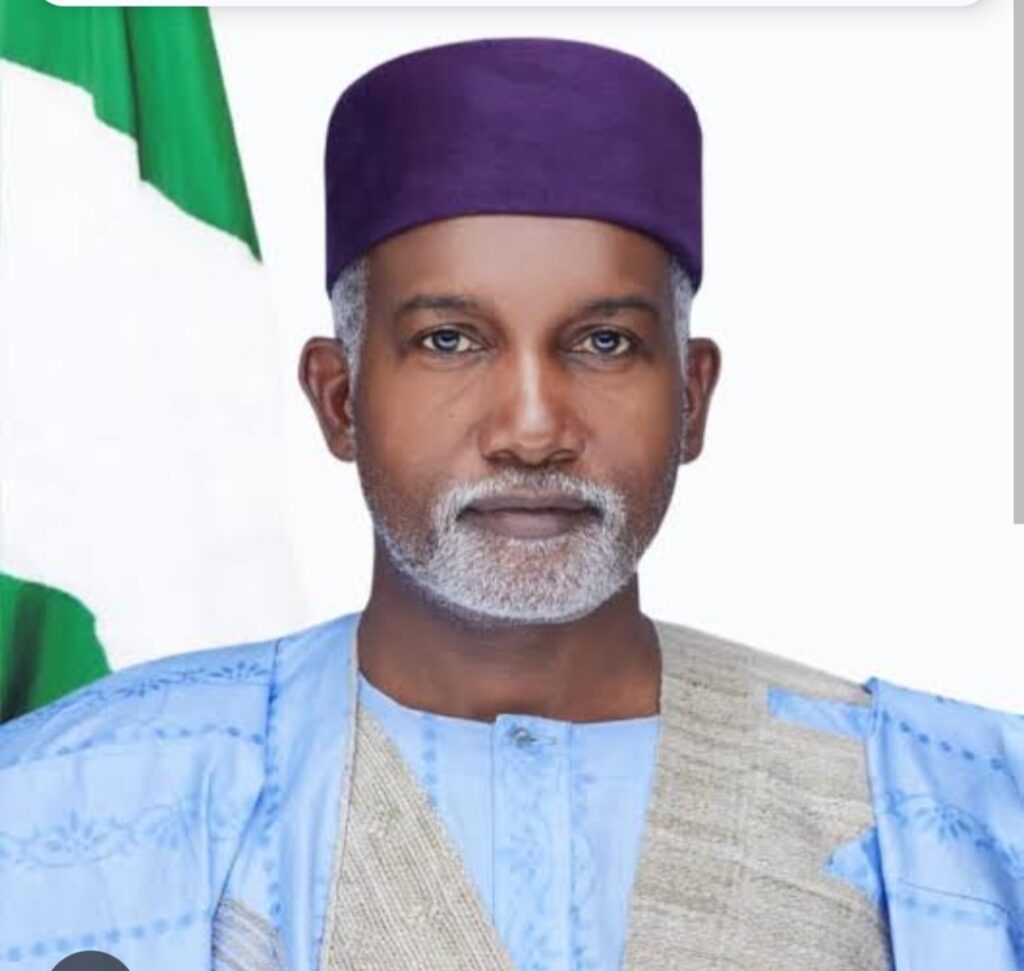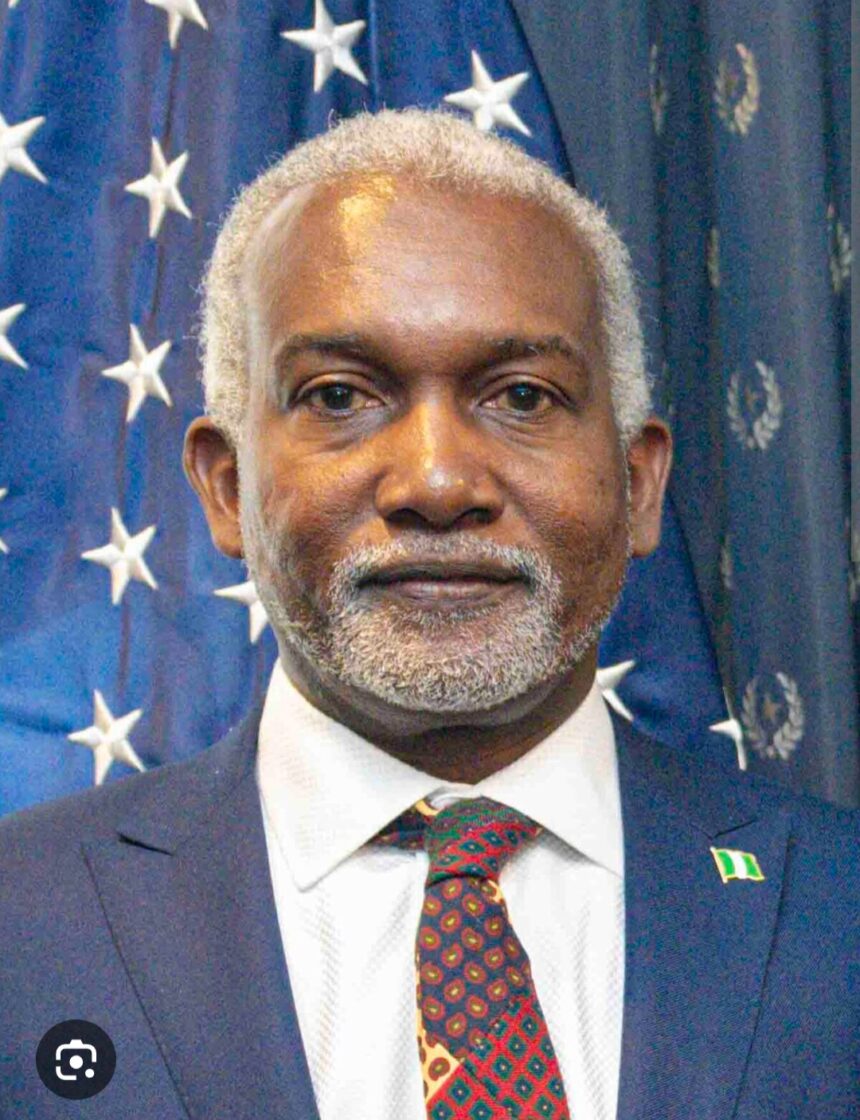There is chaos in Abuja and confusion abroad, as Nigeria’s Foreign Ministry plummets into unprecedented disarray. Understaffed, under siege, and underperforming, the ministry has become a diplomatic disaster zone.
Amid the melee, ambassadors sit idle and the foreign affairs minister travels frequently, leaving the country’s diplomatic missions to flounder without direction.
Yet President Bola Ahmed Tinubu’s foreign policy woes are only just deepening. With ambassadors recalled and a minister perpetually abroad, the die seems cast for the country’s foreign relations. …CONTINUE READING

Nearly a year after General Abdourahamane Tchiana’s coup in Niger, President Tinubu is still grappling with the fallout—not just in Niamey, but within his own foreign ministry. Headed by the often-absent Yusuf Tuggar, the ministry is a whirlwind of confusion and inefficiency, leaving Nigeria’s embassies across the globe adrift and leaderless.
Diplomatic Deserts: Nigeria’s Ministry in Crisis
Short-staffed, with the minister regularly absent from the home country, and ambassadors back in Abuja, Africa’s most populous country’s foreign ministry is adrift. As ECOWAS chair since last July, President Bola Ahmed Tinubu is unable to sail the vessel of state through these stormy times. A year after his inability to rein in the junta established by Colonel Abdourahamane Tchiana, Nigeria is still paying the price.
A Minister Adrift
Nigeria’s Foreign Minister Yusuf Tuggar has spent much of his time at the top of the ministry out of the country. There has been nobody to lead it Tuggar is from Bauchi State in northern Nigeria and was Nigeria’s Ambassador to Germany before being nominated by Tinubu for the foreign portfolio in August 2023. It’s the first time since the return of democracy in 1999 that a foreign minister for Nigeria has not had a junior minister to assist him. It was the Tinubu presidency that insisted on this unprecedented downsizing of an important ministry (only the controversy over the minister of Finance has rivalled that provoked by Tinubu’s foreign minister since he took office in May 2023). In a government with 48 ministers, Tinubu has saved little, and things are virtually at standstill at the ministry of foreign affairs largely due to the foreign minister frequent travels out of the office. He has been unable to make important decisions since he took office, hoping that things will come good until he can return to Abuja.
Power Struggles and Personnel Problems
When Tuggar travels, decisions come to a halt, and foreign embassies in the capital Abuja are immobilised. The new acting secretary general Ben Okoyen is also ‘overwhelmed’, one source said, and upon assuming the role he took over from a predecessor who had been sacked following alleged harassment, straining the ministry’s internal power structure. An endless reshuffling of senior civil service and diplomatic positions, leaving some vacant, means critical strategic decisions are stalled or delayed because of a swirling power vacuum. Senior diplomats and directors who should be overseeing key mandates including embassies and ministry branches across the country are left twiddling their thumbs waiting for guidance that never comes. Across the sector, a power struggle has created a toxic atmosphere of suspicion and intrigue. Opportunistic individuals have rushed in to fill the gaps that should have been occupied by senior managers.
Headless Embassies and Halted Diplomacy
Almost all of the country’s ambassadors were recalled in October 2021 but, with the exception of those to Geneva and New York, they’ve all left without a replacement. Even standard practice of keeping career diplomats performing their duties until new ambassadors have been confirmed by the Senate has been kept from embassies around the world. This puts Nigeria’s entire diplomatic service in limbo. Ten months on, the new list of ambassadors-designate remains uncleared by executive, legislative and judicial opposition, lack of funds and clawbacks, while any feasible proposition for on-missioning will have to wait until at least 2025. The teacup rotations at the embassies may sound inconsequential but the power vacuum in the foreign missions creates negative knock-on effects on the diplomatic engagements and outcomes. Lacking give and take, no foreign mission could maintain its diplomatic demeanour and impartially promote the country’s interests without a resident ambassador. A chargé d’affaires performs a necessary but limited job: one that’s always temporary, pending the confirmation of a new ambassador.

The South Africa Diplomatic Fiasco
There was yet another recent diplomatic embarrassment for the president Tinubu in South Africa. After the inauguration of South Africa’s president Cyril Ramaphosa, Nigeria’s president Tinubu met him behind closed doors at his hotel, the Radisson Blu in Johannesburg. In honour of Tinubu’s presence at Ramaphosa’s second-term inauguration, the South African president thanked the Nigerian president.
Tinubu replied with how good it was for Ramaphosa’s inaugural address to acknowledge the problems we face as people in Africa and the purposeful way that lessons learned can boost the performance of leaders and citizens alike in the difficult search for usable solutions.
Lo and behold, a while afterwards, the South African Presidency uploaded images from the meeting on its social media page, with the caption: ‘His Excellency President Matamela @CyrilRamaphosa in a bilateral meeting with His Excellency President Bola Ahmed Adekunle Tinubu @officialABAT of the Federal Republic of Nigeria. President Tinubu was at the Presidential Inauguration to witness President Ramaphosa’s swearing-in.’
But Nigerians spotted a glaring typo, and many rebuked Harvard by overwhelming the tweet with calls for the name’s correction. ‘Adekunie? Sorry. Those of us in Nigeria are not familiar with that name,’ said one, @IfiokDavids. ‘Adekunle is the correct name, not Adekunie. Please correct,’ said another, @Adekunle. Given the politics at play and the language itself – Yoruba has a particularly nuanced tone system – it is easy to imagine the tiny change. As of this writing, Adekunie still plagues the Harvard update on the President.
An air hovered over the bilateral meeting, with some describing it as a regular diplomatic encounter and others portraying it as an effort to cover up a social faux pas. A widely circulated Twitter video showed Ramaphosa enthusiastically greeting Denis Sassou Nguesso of the Republic of Congo as Tinubu looked on from the back. Nigerians divided on what it meant, with some pointing to it as a snub.
There he sat in the second row, alongside the leaders of Zimbabwe, Angola, the Democratic Republic of Congo and Tanzania, behind Independence monument in Abidjan awaiting his turn to meet with the ‘celebrant’. After making the rounds and greeting those in the first row, which included several South African dignitaries as well as Nguesso, Ramaphosa moved to greet the second-row leaders and again gave each a ‘We’ll talk later’ in parting. Not all of this made it to the net, but Ramaphosa probably sat through private meetings with some of the other heads of state there as well.
Even the president’s previous trip to London, United Kingdom, was noted as ‘marked by the widespread absence of protocol’ while all this squanders Nigeria’s international standing. But it is more serious than this. Combined with the endemic dysfunction within the foreign ministry, these events illustrate the erosion of Nigeria’s global influence. The president’s failure to manage his diary and order of appearances on the visit to South Africa, in particular, is an indication of the ineptitude that characterises his government, according to pundits.
Tug-of-Wars and Turf Battles
Departmentally, the ministry is an arena of internal rivalry and political horse-trading. The appointment of new ambassadors has become a political battleground as various entities within the executive are angling for influence. This infighting has stalled the process for approving new ambassadors, with the consequence that dozens of posts at Nigeria’s diplomatic missions remain vacant. The failure to appoint ambassadors is not an administrative muddleball. It is a reflection of deeper political tensions in a government that has been unable to stabilise its power and rationalise its operations. Infighting at this level is indicative of the government’s precarious balance.
Financial Fiascoes and Empty Coffers
The other can of worms: the financial mismanagement of the ministry. The federal coffers are dry, too, and there’re no funds to pay for diplomats to be posted abroad. That’s the reason behind the ministry’s paralysis and the inability of the federal government to appoint new ambassadors. A financially crippled ministry means a crippled Nigeria in her diplomatic engagements with the world. The financial crisis is a picture of the broader economic entrapment of Nigeria and the lack of capacity of the Tinubu administration in managing national funds.
Consequences of Chaos
Besides the embarrassment and perhaps losses of dignity and credibility involved, the state of affairs at Nigeria’s foreign ministry portends a bad outcome for Nigeria and its people. In the short run, it substantially limits the country’s ability to conduct international relations, to further its interests beyond Nigeria, and to attract greener pastures for its people. In the mid- and long-term, the continuing uncertainty but also the estimated costs for renting offices and maintaining personnel will hurt the country’s reputation and standing at international fora that are still dotted mainly by western and northern European and US and Chinese players. While Tinubu’s administration works to get a grip on the situation at the foreign ministry, it is important to consider whether Nigeria will find a way to get out of this morass to regain its lost influence, or will continue to drift into irrelevance. The fallout from this diplomatic logjam is already manifesting in Nigeria’s loss of influence in international affairs. The longer it takes to get the ministry up and running, the more difficult it will be for Nigeria to regain its seat as a leader on the global stage.




There is no way the ministry of external affairs and Nigerian embassies would not be in disarray with the cumulative effect of financial fraud of over twenty five years in the federal ministries, departments and agencies. President Bola Tinubu has to pay priority one attention to the administration of criminal justice system in Nigeria. I am completely baffled by a Nigerian government that is in dire need of funds to complete such projects as the very important Ajaokuta steel complex and upgrade our installed capacity for electricity generation to at least 120 thousand megawatts would continue to be tolerant of financial fraud in federal ministries, departments and agencies. A national government that continues to struggle with recurrent expenditure and has little funds for capital projects that would usher in economic development could hardly be classified as a progressive government.